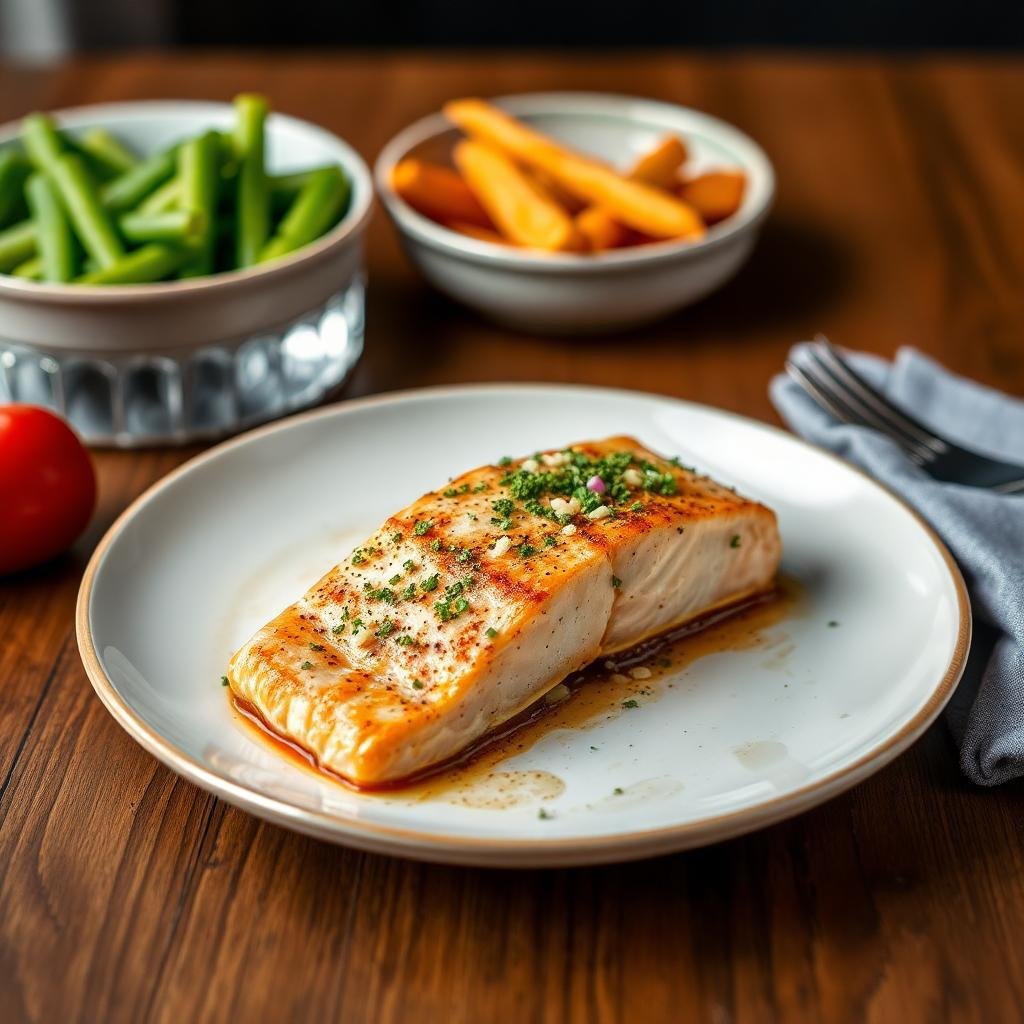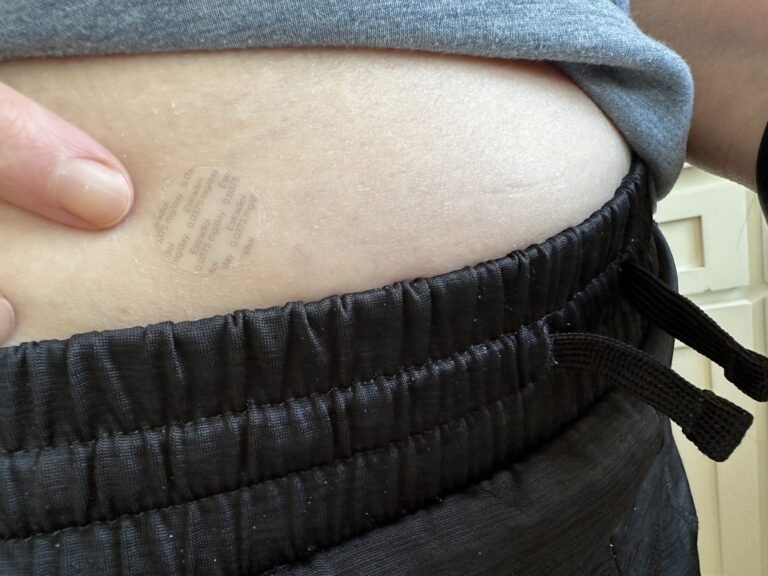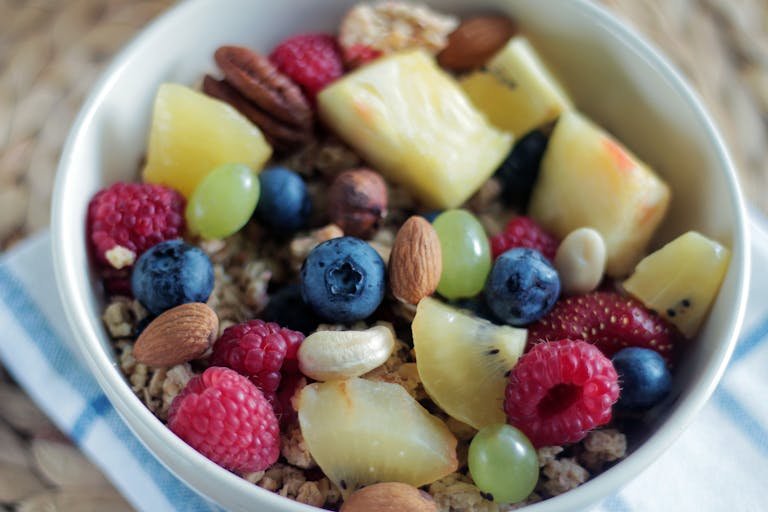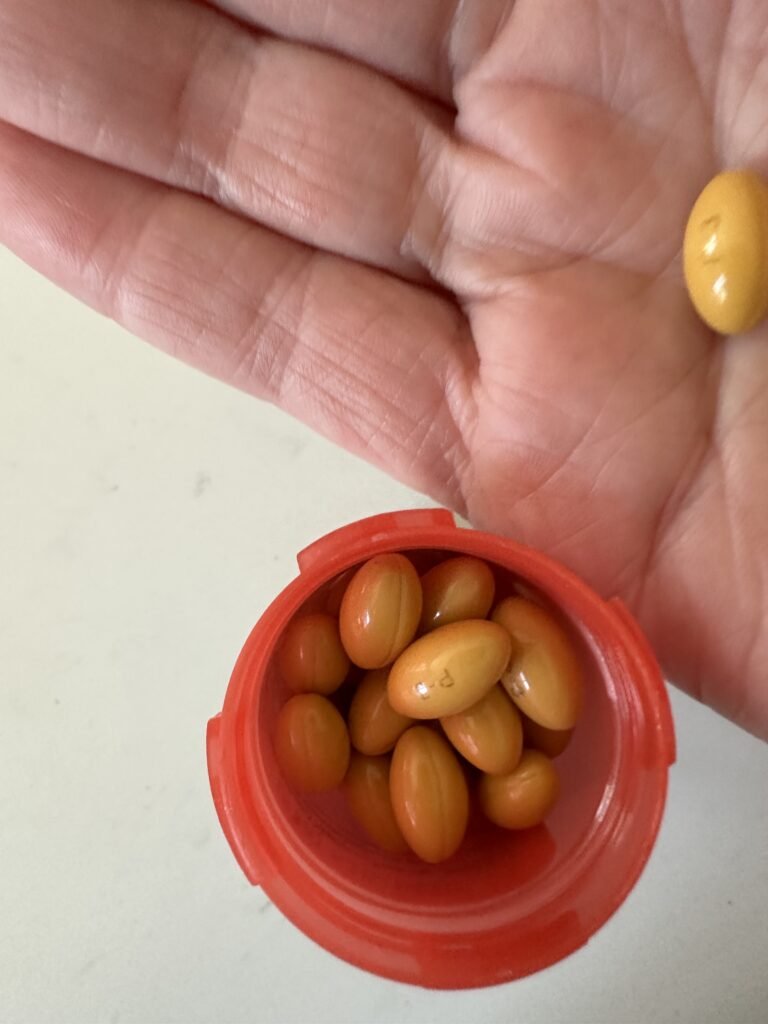7 Day Gut Reset Plan to Balance Energy, Hormones, and Stress
Table of Contents
Feeling off lately? Maybe your energy’s low, your mood’s all over the place, or stress won’t let up. You’re not the only one dealing with this. For women going through menopause or peri-menopause, your gut health might be a bigger factor than you realize. It’s closely tied to hormone balance, stress management, and keeping your energy steady throughout the day. Here’s the thing, your body can get back on track with just a little help. A 7 day gut reset can make a real difference. It’s all about giving your system the support it needs to feel strong and balanced again, honestly, it’s easier than it sounds. And a bonus, if you need to lose a few pounds? Keep reading!
Understanding Gut Health and its Role in Hormonal Balance
If there’s one thing I’ve learned, it’s that gut health is like the unsung hero of your body. It might not get as much attention as your skin or hair, but it has its hands in everything from digestion to energy levels to your hormones. For women, especially during menopause or peri-menopause, an imbalanced gut can send hormones into a tailspin. But what exactly is the connection? And how do you know if your gut might need some extra love?
The Gut-Hormone Connection
Your gut and hormones are like dance partners, when one’s out of step, the whole performance feels off. Inside your gut lives a community of bacteria (your microbiome) that handles a ton of behind-the-scenes work. One major job? Helping process hormones like estrogen.

Here’s how it works: certain gut bacteria, often referred to as the estrobolome, help metabolize and regulate estrogen levels. If your gut bacteria are imbalanced, your body might have trouble breaking estrogen down properly. This can lead to a buildup of estrogen or low levels, which can cause anything from irregular periods (if you’re still cycling) to hot flashes, weight gain, or even mood swings.
And it’s not just estrogen. Your gut is tied to stress hormones too, like cortisol. When your microbiome is out of balance, it can make it harder for your body to handle stress. Ever notice how stress can mess up your digestion? That’s cortisol working overtime. Gut health and stress are a two-way street – when your gut struggles, your stress levels can spike, and vice versa.
Signs of an Imbalanced Gut
So, how do you know if your gut’s trying to tell you something isn’t right? An imbalanced gut isn’t always obvious, but there are some common signs that crop up. Here’s what you might notice:
Chronic fatigue: Feeling tired no matter how much you rest? Your gut might not be absorbing nutrients properly.
Digestive issues: Think bloating, constipation, diarrhea, or that “heavy” feeling after meals.
Brain fog: If your thoughts feel cloudy or you can’t focus, your gut could be part of the problem.
Weight gain: Gut imbalances can throw off metabolism and hormone levels, making it harder to manage your weight.
Mood swings or anxiety: An unhealthy gut can affect neurotransmitters like serotonin, which impacts your mood.
It’s like your gut has its own way of sending red flags. If you’re ticking off a few symptoms from this list, your body might be asking for a reset.
Why a Gut Reset Diet is Essential for Women in Menopause
When menopause hits, it’s not just your hormones that can feel out of sync – your gut plays a huge role too. Your digestive system impacts everything from how your body produces energy to how it balances hormones and handles stress. And if your gut health is off, it can make those menopause symptoms even harder to deal with. A gut reset can help you tackle all of that at once. Let’s take a closer look at why this matters so much, especially during menopause.
Improved Energy Levels
Ever feel like you could sleep for days and still wake up tired? That’s not just the menopause talking – it might be your gut. Your digestive system is responsible for breaking down the food you eat and turning it into energy. But if your gut isn’t healthy, it can mess with how well nutrients get absorbed. And no nutrients? No energy.
Think of it like fueling a car. You can pump in the best gas, but if the engine isn’t running well, you’re not going anywhere. When your gut is balanced, it helps your body absorb key nutrients like B vitamins (big energy boosters!) and iron. These are essential for keeping your energy steady throughout the day. A gut reset gives your digestive system a break, letting it “recharge” so it can work properly again. The result? You stop feeling run-down and actually feel like, well, yourself again.

Hormonal Harmony
Hormonal chaos is pretty much the tagline for menopause, right? But here’s something not many people talk about – your gut biome has a lot to do with it. Inside your gut are bacteria that help process and regulate hormones like estrogen and progesterone. When your gut is out of balance, it can throw this entire process off track.
For example, if your gut isn’t breaking down estrogen properly, you might end up with too much or too little of it in your system. And that can lead to some unpleasant symptoms like hot flashes, mood swings, or even difficulty sleeping. Resetting your gut helps rebuild a healthier microbiome, which can make those hormone roller coasters a lot easier to manage. It’s like giving your body the tools it needs to keep things running smoothly behind the scenes.
Stress Reduction
Menopause and stress go hand in hand, doesn’t it? But did you know your gut can either make stress better or worse? Here’s how it works: your gut and brain communicate constantly through something called the gut-brain axis. If your gut is off balance, it can increase cortisol levels (the stress hormone) and decrease serotonin production (the feel-good hormone).
In other words, a struggling gut can leave you stuck in stress mode with no way to shake it off. It’s not all bad though. By focusing on foods that support gut health, like prebiotics and probiotics, you can reduce cortisol levels and boost serotonin. What does that mean for you? Less tension, fewer anxious moments, and a better night’s sleep. Yes, please!
When your gut works for you, it doesn’t just make your body feel better, it helps your mind stay calm and balanced too. And let’s be real, who couldn’t use more of that?
The 7-Day Gut Reset Plan: A Detailed Meal Plan
If you’re feeling like your gut’s been waving the white flag lately, don’t worry, I’ve been there too. Bloating, low energy, or just feeling “off” can all be signs that your gut needs a reset. That’s where the 7-day gut reset plan comes in. It’s simple, nourishing, and designed to help you feel your best again. Let’s take a look…
Foods to Include and Avoid

Getting your gut back on track starts with what goes on your plate. Some foods give your gut a hug, while others? Not so much. Here’s a quick refresher:
Foods to include:
Fermented foods: Think yogurt, kefir, kimchi, sauerkraut, and miso. These are your probiotics’ best friends.
Fiber-rich vegetables: Broccoli, carrots, spinach, and kale help keep things moving and feed good gut bacteria.
Prebiotic foods: Onions, garlic, asparagus, and bananas work behind the scenes to feed the good bacteria.
Lean proteins: Chicken, turkey, eggs, fish, and plant-based proteins like lentils or tofu are gentle on digestion.
Healthy fats: Avocados, olive oil, nuts, seeds, and fatty fish like salmon can calm inflammation and promote healing.
Foods to avoid:
Processed foods: Those ready-made microwave meals? They’re high in preservatives and low in nutrients.
Added sugars: Sugary snacks and sodas feed the bad bacteria you don’t want in your gut.
Alcohol: It irritates the lining of your gut and disrupts your microbiome.
When planning meals, keep it simple. Focus on whole, natural foods that are easy to digest and packed with nutrients.
Day 1-3: Detox and Elimination Phase
The first three days are all about giving your gut a break. Think of this as the “clean slate” phase. You’ll focus on super simple, nourishing meals to reduce inflammation and clear out the bad stuff.

Breakfast:
A warm mug of bone broth (it’s loaded with nutrients that soothe and heal).
Follow it with a small plate of steamed veggies like zucchini or squash.
Lunch:
Steamed salmon or chicken (just a palm-sized portion), paired with a side of lightly steamed spinach or broccoli.
Sip on herbal tea like chamomile or peppermint to aid digestion.
Dinner:
A veggie-packed bowl of soup with ingredients like celery, carrots, and chicken broth.
Add in a small portion of quinoa if you’re feeling hungry.
Snacks:
Sliced cucumber or carrots with a sprinkle of sea salt.
A handful of walnuts or almonds, but stick to raw and unsalted (no roasted or candied options).
During these first few days, you might feel sluggish as your body adjusts. That’s completely normal! Keep drinking water or herbal teas to stay hydrated and help flush out toxins.
Day 4-7: Rebuilding and Feeding the Microbiome
Now that your gut has reset a bit, it’s time to bring in the good guys, the probiotics and prebiotics. These are the building blocks for a happy microbiome. At this stage, you’ll also start adding more variety to your meals.
Breakfast:
A bowl of plain Greek yogurt topped with a bit of soaked chia seeds and a drizzle of honey.
Add a small handful of blueberries or slices of banana for extra prebiotic fiber.
Lunch:
A mixed greens salad with grilled chicken, olive oil, and a touch of lemon juice.
Toss in some fermented veggies like kimchi or sauerkraut for an added probiotic boost.
Dinner:
A hearty serving of baked salmon or tofu with roasted sweet potatoes and sautéed asparagus (hello, prebiotics!).
Bonus: drizzle everything with olive oil for added healthy fat.

Snacks:
A small handful of raw almonds or walnuts.
Slices of apple with almond butter (just make sure it’s unsweetened).
A side of miso soup, which is packed with probiotics.
By the end of the week, you’ll notice a difference. Your digestion feels smoother, you have more energy, and maybe even fewer mood swings. It’s amazing how much of an impact just a week of mindful eating can make.
Practical Tips for Success on the Gut Reset Diet
Getting started on a gut reset diet can feel a bit overwhelming, but having the right tools and strategies makes all the difference. Whether you’re trying to balance hormones, boost energy, or just feel more “you” again, small habits can lead to big wins. Let me walk you through some actionable tips to make this process as smooth as possible.
Meal Prepping Strategies: Guide on batch cooking and preparing snacks to avoid processed food temptations
Meal prepping is your best friend when you’re trying to stick to a plan. I get it, life is busy, and when you’re starving at 3 PM, those salty crackers in the pantry suddenly look way too tempting. Prepping meals and snacks in advance can save you from those moments.
Here’s how I like to tackle it:
- Start with a plan: Write down what you’ll eat for the week. Think breakfast, lunch, dinner, and snacks. Keep it simple – repeating meals is totally fine.
- Batch cook staples: Roast a tray of veggies, cook some quinoa or brown rice, and grill chicken or tofu all in one go. Store them in airtight containers, and voilà – you’ve got mix-and-match meal components for days.
- Prep your snacks: Chop up veggies like cucumbers, bell peppers, and carrots. Pair them with single-serve hummus or almond butter. Hard-boiled eggs and small handfuls of raw nuts also make quick, gut-friendly options.
- Use freezer magic: Soups and stews are lifesavers. Make a big batch, portion it out, and freeze. It’s gold on a busy night.
Keeping healthy, prepped food on hand means you’re way less likely to grab the processed stuff when hunger hits. It’s like setting your future self up for success.
Hydration and Supplements: Discuss the importance of water intake and potential supplements like digestive enzymes or probiotics
Staying hydrated is non-negotiable on this plan. Water is like oil for your car engine, it keeps everything running smoothly. Aim for at least 8-10 glasses a day, but listen to your body. If you’re thirsty, drink.
Here’s something I love doing: start your morning with a glass of warm lemon water. It kickstarts digestion and feels like a mini cleanse for your gut, you know, the kind of thing that makes you feel like you’ve got it all together.

3 Supplements You Should Start Today
Now, let’s talk supplements. While food should always come first, a few key ones can help your gut reset go even further:
Probiotics: Think of probiotics as reinforcements for your gut. A high-quality supplement (check for at least 10 billion CFUs) or fermented foods like yogurt or kimchi can help rebuild a healthy gut microbiome.
Digestive enzymes: If you’ve been dealing with bloating or sluggish digestion, these little helpers can break down food more efficiently. Look for one with lipase, protease, and amylase.
Magnesium malate (day time) and/or Magnesium glycinate (night time): This is a game-changer for staying regular (yes, I went there).
If you’re adding supplements, stick to one at a time so you can see how your body reacts. And don’t forget to keep sipping water throughout the day because it supports everything from digestion to energy levels.
Tracking Your Progress: Include tips on tracking energy, mood, and digestion to monitor the diet’s effectiveness
You know that saying, “What gets measured gets managed”? It’s true here, too. Tracking progress might sound tedious, but it’s actually super useful. It helps you see what’s working and what might need tweaking.
Here’s what I suggest you track:
- Energy levels: Use a scale from 1-10. Jot down how you feel in the morning, afternoon, and evening. Are you crashing less? That’s progress!
- Mood: I keep this simple. Write a one-word description of your overall mood each day. Happy? Anxious? Calm? Over time, you’ll notice patterns.
- Digestion: Pay attention to the basics – bloating, regularity, and that “heavy” feeling after meals. It’s not TMI if it helps you feel better.
You don’t need a fancy app or journal for this. A simple notebook or even your phone’s notes app works perfectly. Be honest but don’t overthink it. This is about spotting trends, not perfection.
Tracking isn’t just about numbers; it’s about celebrating wins, too. Did you go a whole day without bloating? Write it down and give yourself a high five. Feeling more energized in the afternoons? That’s worth acknowledging.
Small, daily notes can help you stay motivated and make the gut reset a lot more rewarding. Plus, it’s kind of cool to look back and see just how far you’ve come.
Post-Reset: Maintaining a Healthy Gut
Once your 7-day gut reset is behind you, the real work begins. It’s not about going back to old habits but about laying the groundwork for long-term gut health. Think of this as the next step in the journey, not a finish line, but a lifestyle shift. A balanced gut doesn’t just happen; it’s something you nourish daily through what you eat and how you live.

Eating for Long-Term Gut Health
The foods you eat play a huge role in keeping your gut happy. Now that you’ve done the reset, it’s time to focus on maintaining those results with a gut-friendly diet. It’s not complicated, I promise, just a few simple tweaks can make a huge difference.
First up, fermented foods. These are like the VIP guests for your gut bacteria. They bring probiotics to the table, which helps your microbiome stay balanced. My favorites? Kimchi, sauerkraut, and kefir. A few tablespoons here and there can work wonders. Even a dollop of miso paste in soup is great.
Next, let’s talk fiber, it’s your gut’s BFF. Soluble fiber (found in oats, sweet potatoes, and carrots) feeds the good bacteria. Insoluble fiber (think whole grains and leafy greens) keeps things moving along. A mix of both is ideal. One trick I like to do is tossing a handful of ground flaxseeds on my morning oatmeal or yogurt.
Balanced meals matter too. Your gut loves variety, so aim to include a mix of protein, healthy fats, and fiber-rich carbs in your meals. For example, a plate with grilled salmon, roasted veggies, and quinoa checks off all the boxes. It’s about creating a gut-friendly environment where good bacteria can thrive.
One thing I’ve learned? Less is more when it comes to processed foods and added sugar. They can feed the bad bacteria so try to stick to whole foods when you can, and your gut will thank you.
Lifestyle Habits for Gut Support
Turns out, keeping your gut healthy isn’t just about what’s on your plate. How you live your life impacts your gut more than you might think. Stress, poor sleep, and lack of movement can throw things off balance even faster than junk food.
Let’s start with stress. You’ve heard the whole “gut-brain connection” thing, right? It’s 100% real. When you’re stressed, your gut feels it too. That’s why I make time for simple stress management techniques every day. Meditation apps, yoga stretches, or even five minutes of deep breathing before bed can work wonders.
Regular movement is key too, and I don’t mean hours at the gym. A 20-minute walk around your block or gentle stretching counts. Exercise helps keep your digestion smooth and supports a healthy microbiome. Plus, it’s a great mental reset – especially if you can do it outdoors.
Let’s talk about sleep. Poor sleep can mess with everything, including your gut. Aim for 7-9 hours a night. One tip I highly suggest is powering down screens an hour before bed. It’s a small change, but it helps signal your body it’s time to rest.
If this feels like a lot, don’t worry. Small changes add up over time. Take it one habit at a time, and soon enough, these will just be part of your day.
When to Seek Professional Help
Sometimes, despite your best efforts, gut issues don’t improve. And you know what? That’s okay. You shouldn’t feel like you have to figure it all out on your own.

If symptoms like bloating, constipation, diarrhea, or fatigue keep sticking around, it might be time to consult a healthcare professional. A nutritionist can help you identify specific triggers, whether it’s food sensitivities, a nutrient deficiency, or something else entirely. They can also recommend personalized protocols, like adding specific probiotics or prebiotics.
And if gut issues are paired with other symptoms – like unrelenting fatigue, ongoing mood swings, or weight changes, it’s worth checking in with your doctor. Sometimes hormone imbalances or underlying conditions can play a role and in that case, it may be time to have some bloodwork done.
So if your gut still feels off despite following all the tips, don’t hesitate to reach out. You deserve to feel your best.
Let’s Sum It Up
A 7-day gut reset can make a real difference. It’s not just about feeling lighter or fixing digestion, it’s about improving energy, balancing hormones, and managing stress in a way that works with your body, not against it. Small changes, like eating gut-friendly foods and making time for self-care, can have ripple effects on your overall well-being.
If your gut’s been giving you signals – low energy, mood swings, or that constant bloated feeling, it’s time to listen. Start with these simple steps and see how much better you can feel in just a week.
Ready to take charge of your health? You’ve got this. Your gut will thank you!








